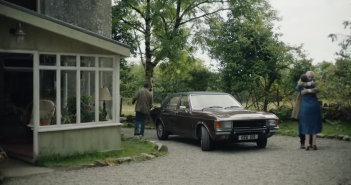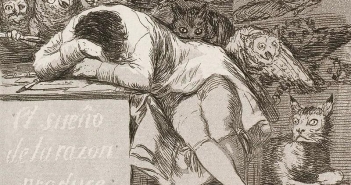It is easy when we are in prosperity to give advice to the afflicted.
Aeschylus
Protestations against James Joyce’s ‘The Dead’ House on Usher’s Island being ear-marked for a hostel are rooted in cultural-bias and emotional-led egocentrism, and exhibit blatant hypocrisy among the denouncers. Artsy sentimentality can be the lesser evil, but it is still based on emotional, and, cultural biases.
The Aeschylus quote above may seem naïve with society unsettled by the Covid-19 pandemic – anxiety heightened and spurred on by the populist mediocrity – but the reality is, these past twenty years, we have never had it so good, especially with plenty of food at our disposal, alongside acres of indoor comfort available from pulsating warm radiators, hot water galore, and lest we forget our electronic devices yielding Netflix.
A festive analogy may be relevant here, the geese have gotten fat and inactive. Selfishness abounds. Narcissism and the age of the red-carpeted self are traits which are promoted rather than rationalised.
A thought-tormented age
This was perhaps anticipated in James Joyce’s short story ‘The Dead’ from Dubliners (1914), when the character of Gabriel Conroy says:
But we are living in a sceptical and, if I may use the phrase, a thought-tormented age: and sometimes I fear that this new generation, educated or hypereducated as it is, well lack those qualities of humanity, of hospitality of kindly humour which belong to an older day.
Regularly trudging past ‘The Dead House’ on the banks of the Liffey I have noted its square, flat Georgian edifice. Its jet-black door. Joyce describes it as ‘the dark, gaunt house’.
Over the past few years, it has come to light that this building on Usher’s Island is set to become a tourist hostel. This has led to cries of ‘cultural vandalism,’ but why were the same journalists and commentators silent when the building sat derelict for years? Unused. Unravelling and falling apart at the seams.
For a year, I sat in on Readings of Joyce’s Ulysses in Sweny’s Pharmacy on Lincoln Place, and did not encounter a single Irish writer of any standing. At the end of each session a wooden bowl was passed around to the attendees, who would dispense a few coins to help pay the rent. No rich, successful Dublin-based writers were coughing up dough to keep this cultural institution afloat.
The reality is that Dublin-based, and Dublin-enthralled, writers do not admit to themselves that Dublin has been swallowed up by the capitalist project. They are simply in denial.
The cultural embargo comes out in plaintive cries of ‘How dare they wreck our heritage?’ from behind computer screen in comfortable homes. Keyboard heroes. One and all. It has to be said that some are indolent and sly, with one eye on anything Joyce-related to enhance their own reputations and further book sales.
I do wonder – the Diogenesian cynic may ask – whether many of them have actually deigned to read much of Joyce’s work bar a few short stories from Dubliners? They may want to be associated with his masterpiece Ulysses but are they possessed by it?
Do they want to recreate the Cabman’s shelter under Butt Bridge or Bella Cohen’s bordello down on the now gone Tyrone street?
In ‘The Dead’ itself, Gabriel’s face colours when asked about his writing for the Daily Express, a Unionist newspaper, and is even labelled as a ‘West Briton’ by Miss Ivors. In Dublin parlance a ‘West Brit,’ or ‘Castle Catholic,’ remains someone who would have no home-spun patriotic scruples in dealing with the mother colony for purposes of profit; the comprador elite of an ex-colony.
How many Irish-based writers now have English agents, English publishers? How many have made their careers in London? More power to them, but the wedge of Anglo-Irish relations should narrow at least somewhat in the near-future. Here is hoping. Better to work together than at difference.
‘the dark mutinous Shannon’
There is a great irony contained in Gabriel’s epiphany as he observes snow falling from outside of his hotel window in the closing monologue. He does not mention the Liffey, but instead dwells on ‘the dark mutinous Shannon waves.’
In his biography of Joyce Richard Ellmann states:
The fine description: “It was falling on every part of the dark central plain, on the treeless bills, falling softly upon the Bog of Allen and, farther westward, softly falling into the dark mutinous Shannon waves,” is probably borrowed by Joyce from a famous simile in the twelfth book of the Iliad, which Thoreau translates: “The snowflakes fall thick and fast on a winter’s day. The winds are lulled, and the snow falls incessant, covering the tops of the mountains, and the hills, and the plains where the lotus-tree grows, and the cultivated fields, and they are falling by the inlets and shores of the foaming sea, but are silently dissolved by the waves.” But Homer was simply describing the thickness of the arrows in the battle of the Greeks and Trojans; and while Joyce seems to copy his topographical details, he uses the image here chiefly for a similar sense of crowding and quiet pressure. Where Homer speaks of the waves silently dissolving the snow, Joyce adds the final detail of “the mutinous Shannon waves” which suggests the “Furey” quality of the west. The snow that falls upon Gabriel, Gretta, and Michael Furey, upon the Misses Morkan, upon the dead singers and the living, is mutuality, a sense of their connection with each other, a sense that none has his being alone. The partygoers prefer dead singers to living ones, the wife prefers a dead lover to a live lover.
There are the true Joyceans who love Joyce for his unrivalled creative genius and dedication to his Art and more power to their elbows. Kudos my fair-weathered literary friends.
A Hostel for Creatives
What about it keeping it as ‘The Dead House’ by way of a Hostel? Let creative folk add their work inside: paintings. Musings. Writings. Musical nights. Don’t let it become a shell. A phantom dedicated to Joyce Ltd. The Irish Tourist mentality to wring money and promotion out from every Joycean occasion. He would really have detested that.
Joyce’s attitude towards his ‘fatherland’ are perhaps best encapsulated in a memorable speech of Stephen Daedalus from Portrait of an Artist:
I will tell you what I will do and what I will not do. I will not serve that in which I no longer believe, whether it calls itself my home, my fatherland, or my church: and I will try to express myself in some mode of life or art as freely as I can and as wholly as I can, using for my defense the only arms I allow myself to use — silence, exile, and cunning.
There are plenty of Joyce tributes/buildings in the city, including, The James Joyce Centre, on North Great George’s Street, Davy Byrne’s on Duke Street, and Sweny’s Pharmacy, on Lincoln Place
Dublin is a bustling city. A garrulous metropolis. Where many, many tourists flock. No doubt they will return. Let ‘The Dead House’ vibrate and echo some of that human activity; and wouldn’t it be great if funds were apportioned to update and renovate some of the sagging grey buildings of Usher’s Island on that stretch of the quays?
As Mary Jane says in the story that the coffin, ‘is to remind them of their last end.’ An empty, dilapidated house is a soulless thing. A crypt, devoid of life.
And as Gabriel says in his speech to the rapt attendees of the party on Usher’s Island, ‘Ladies and Gentlemen, it is not for the first time we have been gathered together under this hospitable roof, around this hospitable board.’
And it wouldn’t be quite something to hand-over to the Land of the Living, salvaging something from the Land of The Dead?




